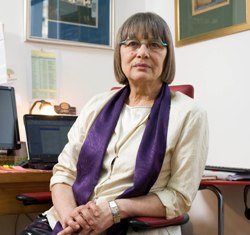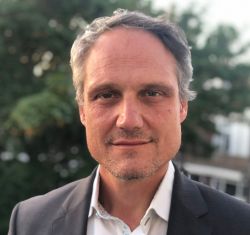Mission:
The work of Humanitarian Law Center encompasses documentation, justice and memory.
Humanitarian Law Center supports post-Yugoslav societies in promotion of the rule of law and acceptance of the legacy of mass human rights violations, and therefore in establishing the criminal responsibility of the perpetrators, serving justice, and preventing recurrence. Realisation of these goals in the region implies going through a comprehensive and multifaceted transitional justice process. First and foremost, victims of war crimes need to fulfil their right to justice, truth, and reparation. Second, this process encompasses bringing those responsible for the crimes to court and unravelling of the institutional and state structures that were instrumental in the systematic human rights violation of the 1990s wars. Finally, awareness of the crimes that took place and giving recognition to the victims in broader society is crucial so that such crimes do not happen again.
Humanitarian Law Center is organised in three pillars and implements transitional justice program through them:
- Documentation
- Justice
- Memory
1. Documentation
Humanitarian Law Center has worked on documentation of war crimes and human rights violations since 1992. Over the years, the HLC has collected more than three million files related to the armed conflicts in the territory of the former Yugoslavia. The HLC Archive stores primary materials pertaining to mass human rights violations gathered since 1992 and more than 90% of the copies of the public archive of the International Criminal Tribunal for the Former Yugoslavia (ICTY). Among other items, the Archive contains documents from the war crimes trials held at domestic courts in Serbia and the region, media archive from the 1990s and ICTY materials, such as audio and video recordings and evidence presented at trials. The Archive is in to the continuous digitisation process.
2. Justice
The judicial pillar of Humanitarian Law Center encompasses legal representation of victims of war crimes before Serbian courts, monitoring of all war crimes trials held in Serbia, representation of victims in compensation proceedings and filing legal complaints against perpetrators of war crimes to the War Crimes Prosecutor’s Office. It also includes publication of dossiers that highlight the complicity of high-ranking members of the army and police forces in war crimes and represent a call for vetting. Finally, the judicial pillar involves policy research and advocacy for judicial and institutional reforms to enable fulfilment of the right to justice for victims.
3. Memory
Humanitarian Law Center commemorates victims through various initiatives, including public debates, documentary films and digital memory activism on social media and through other digital memory practices. In addition to commemorating victims of war crimes and mass human rights violations during the 1990s wars, memorialisation program challenges and confronts the dominant revisionist narratives about the wars, provides informal education, disseminates the judicially determined facts about the wars in an engaging way, using different media formats. The program conducts policy-oriented research and analysis as well as commentary of official memory politics in the region.
History
Humanitarian Law Center (HLC) was established in 1992 by human rights activist Nataša Kandić as a human rights non-governmental organisation that would document the human rights violations perpetrated on a massive scale across the former Yugoslavia, during the armed conflicts in Croatia, in Bosnia, and later in Kosovo. Since 1992 HLC has worked tirelessly to document war crimes and human rights abuses and support victims and their families in achieving justice.
The HLC documentation was crucial for landmark cases at the ICTY such as Foča, a pivotal case in prosecution of wartime sexual violence. When the Kosovo war started, HLC established offices there and stayed in during the NATO bombing, even when the ICRC, OSCE and international media left, reporting from Kosovo. After the wars ended, HLC turned to transitional justice. It developed a model for representing victims in domestic war crime trials, enabling the families of victims from Bosnia, Croatia and Kosovo to come to trials in Serbia. Moreover, HLC has represented more than 1000 victims of human rights violations and war crimes in civil proceedings for compensation at courts in Serbia.
HLC initiated the Kosovo Memory Book, a still ongoing project that documents every individual case of war-related death and disappearance in Kosovo between 1998 and 2000. Finally, HLC nurtures a regional approach to justice through RECOM – a civil society initiative to create an official regional truth commission to establish the facts about war crimes and human rights violations committed on the territory of the former Yugoslavia in the period between 1991 and 2001.
HLC has developed numerous partnerships and it is a member of Coalition for RECOM, International Coalition of Sites of Conscience and Victim Support Europe
Documentary of the first 15 years of the HLC’s work.
Our team
Nataša Kandić, Founder

Nataša Kandić, the Founder of the HLC, has won over 20 international, regional and national awards for human rights. In 2000, she was presented with the Martin Ennals award, a prestigious award for human rights defenders. Nataša Kandić is one of the names on the list of 36 European heroes in 2003 chosen by the American magazine Time. In 2004, the People in Need Foundation awarded the Homo Homini award to Nataša Kandić and the HLC, and this award was presented to Nataša Kandić by Vaclav Havel. In 2005, she was pronounced an Honorary Citizen of Sarajevo, and Slobodna Bosna magazine elected her Person of the Year in Bosnia and Herzegovina. In September 2006, Time magazine pronounced Nataša Kandić one of the heroes of the past 60 years. In March 2007, Nataša became a member of the International Journal of Transitional Justice (Oxford University Journals), and in August 2008, she was invited to join the Advisory Council of the Weiser Centre for Emerging Democracies, University of Michigan. The Kosovo Institute of Peace presented Nataša with ‘The Peace Award’ in November 2012, “for her extraordinary work and contribution for reconciliation among the nations in the Balkans”. In 2013, Nataša was named the ‘Civil Rights Defender of the Year’, she was the winner of the ‘Days of Sarajevo 2013’ award, given by the Youth Initiative for Human Rights in Serbia, and also received the ‘Hrant Dink’ award from the Turkish ‘Hrant Dink Foundation’.
Nenad Golčevski, Executive Director

Nenad Golčevski is the HLC's Executive Director since May 2023. He joined the organization in 2005, working on a project of creating a mirror digital archive of the ICTY in BCS languages, and later as the HLC’s Fundraising and Development Manager.
From 2013 to 2017 Nenad worked with the ICTY, first as the Head of its Outreach Programme, and later as the Spokesperson and then as the Head of ICTY Communications. In 2018, Nenad joined the UN IRMCT, where he led the establishment and set-up of its outreach section, i.e., the ‘Mechanism’s Information Programme for Affected Communities’. As an expert consultant he worked with organisations such as Freedom House and Global Initiative for Transitional Justice and Reconciliation. He held guest lectures and seminars at the University of Amsterdam, Leiden University and the Erasmus University in Rotterdam, and published articles in academic journals, book chapters and media features on transitional justice.
Nenad holds a BSc in Psychology from the University of Belgrade and MSc in Communication Science (cum laude) from the University of Amsterdam.
- Jelena Krstić
- Deputy executive director
- Jelena Proročić
- Office coordinator
- Mia Deretić
- Chief accountant
- Ivana Miučić
- Finance Manager
- Jovana Kolarić
- Project coordinator
- Кatarina Maruna
- Researcher/Analyst
- Višnja Šijačić
- Legal analyst
- Vladimir Milanović
- Archivist
- Vladan Đukanović
- Outreach manager
- Milan Gačanović
- Associate
- Nikola Gajić
- Associate
- Farah Huseinagić
- Researcher
- Nevena Bojičić
- Project assistent
- Mirjana Arsić
- Researcher/Analyst
- Dejana Nešić
- Associate





